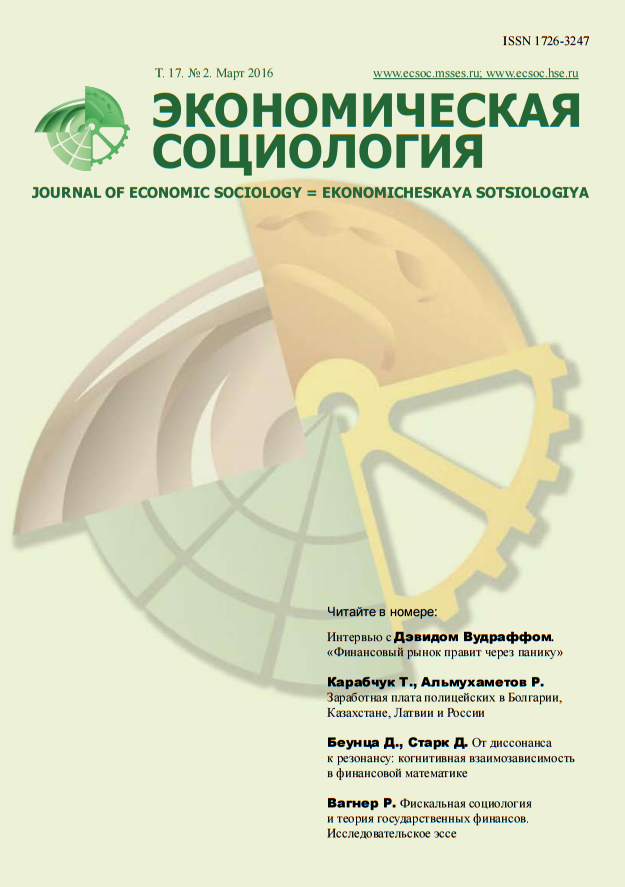Wages of Policemen in Bulgaria, Kazakhstan, Latvia and Russia
Abstract
The police force is the crucial pillar of safety and order in a country.Work in the police is considered to be risky, highly demanding, andvery responsible. Both government and society expect excellent workfrom police officers. A country’s development defines the developmentof its institutions, including the police, which is why many transitioneconomies went through police reforms recently. One of the reforms’targets was the wage of police officers. Unfortunately, the police forceis a very closed social group and can rarely be identified in householdsurveys, so information is scarce. However, it is very important to knowand understand how wages are determined in the police force and ifthere are any differences among countries with transition economies.How much do the wages vary inside the police? This paper is aimed atanalyzing the wage formation mechanism in Post-Soviet countries likeKazakhstan and Russia and in Eastern European countries like Bulgariaand Latvia. In 2012, the highest average monthly wage was to be foundin Bulgaria ($1,428) and the lowest was in Kazakhstan ($595). A regressionanalysis on the collected data from police officers’ interviews(with a sample size of 1,854 policemen) showed that education, tenure,department, and rank determined police wages but also that the factorsdiffered from country to country. Education is the crucial factor in Bulgariaand increases wages by 27%, while in other countries education has no effect on police wages. In Russia,the most significant influence on wages is rank. The higher-ranked police officers receive up to 55% more thanlower-ranked officers do.













